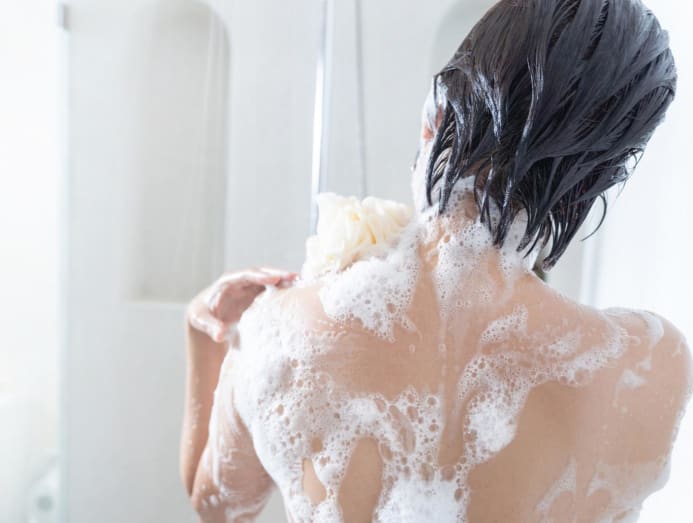Skin Irritation From Chlorine: Essential Insights and Relief
Swimming is a favorite summer activity, but the aftermath of exposure to chlorinated pools can dampen the experience for many, leading to itchy, red, and irritated skin. For beauticians and skincare professionals, understanding the nuances of skin irritation from chlorine is crucial in addressing client concerns and providing effective solutions.
Chlorine, while a potent disinfectant ensuring safe swimming environments, can also cause significant skin irritation from chlorine. This chemical strips away the natural oils from the skin's surface, leading to dryness and discomfort. For beauticians, knowing the causes of such irritation and recognizing the symptoms early is paramount in helping clients mitigate discomfort and maintain healthy skin.
:max_bytes(150000):strip_icc()/Health-GettyImages-1199366228-68076b11f747454fa13e21aa3f5920b6.jpg)
Causes Behind Chlorine-Induced Skin Issues
Chlorine's primary role in maintaining pool hygiene involves killing bacteria and other microorganisms, keeping swimmers safe. However, this powerful chemical can be too harsh on sensitive skin, leading to what some might recognize as swimmer's itch. The irritation typically arises when chlorinated water alters the skin's pH balance, disrupting its natural barrier and leading to potential symptoms.
Common Symptoms of Chlorine Irritation
The symptoms of skin irritation from chlorine can vary from person to person, depending on skin type and sensitivity. Common indications include dryness, redness, itching, and in extreme cases, even minor rashes or peeling. For individuals who frequent the pool, these symptoms might exacerbate over time without proper care. Addressing the issue promptly can prevent further damage and alleviate discomfort.
Practical Tips for Beauticians to Soothe and Prevent Chlorine Irritation
Beauticians can play a significant role in advising clients on effective strategies to minimize chlorine-induced skin irritation. Simple yet effective practices can make a profound difference, keeping skin hydrated and irritation-free.
Pre-Swim Skin Care Tips
Before diving into the pool, suggest that clients shower with non-chlorinated water to saturate the skin with clean moisture. This simple act can reduce the amount of chlorine absorbed during swimming. Additionally, applying a protective barrier cream or oil can form a layer over the skin, minimizing direct contact with chlorinated water.
Post-Swim Skin Relief
After swimming, showering again to rinse off any residual chlorine is essential for maintaining skin integrity. Recommend a gentle, sulfate-free cleanser to cleanse without further stripping the skin. Following up with a rich, moisturizing lotion can help restore lost moisture and soothe any lingering irritation.
Incorporating products designed to repair the skin barrier is also beneficial. Emollients and humectants are particularly effective in drawing moisture into the skin and sealing it. It's also advantageous for beauticians to recommend skincare products containing soothing ingredients like aloe vera, chamomile, and oatmeal extracts. For further insights on maintaining skin health, consider checking out this article on mushroom coffee ingredients.
The Role of Diet and Hydration
Beyond topical treatments, ensure clients understand the importance of diet and hydration in maintaining skin health. Drinking plenty of water before and after swimming can help detoxify the body and keep the skin naturally hydrated from within. A diet rich in antioxidants and omega fatty acids supports skin resilience and repair, providing added protection against chlorine damage.
For more skincare tips, learn about the healthiest body washes that nourish and safeguard the skin in this article.
When to Seek Professional Help
While the above methods can alleviate minor irritation, persistent or severe symptoms warrant advice from a dermatologist. Symptoms like persistent redness, swelling, or rashes might signify an allergic reaction or secondary infection. In such cases, professional assessment and treatment can provide relief and prevent complications.
:max_bytes(150000):strip_icc()/GettyImages-1053614732-bb938a1398b94a7a8b6bf9d73ec0a107.jpg)
FAQs
How can I tell if my skin's irritated by chlorine?
Common signs include itchiness, redness, dryness, and peeling. Observing these symptoms after swimming suggests possible chlorine-induced irritation.
Are there specific products to prevent chlorine skin irritation?
Yes, using barrier creams or oils before swimming can protect the skin. Post-swim, opt for hydrating lotions and gentle cleansers formulated for sensitive skin.
Can diet influence skin's response to chlorine?
Absolutely. Hydration and a balanced diet rich in vitamins and antioxidants can strengthen the skin, aiding in faster recovery and better resistance against chlorine damage.
Understanding the impact of skin irritation from chlorine is crucial for beauticians in offering effective advice and products. For more on preventing skin issues, explore ways to avoid summer breakouts. Additionally, check out external sources like Men's Health for a comprehensive guide on body washes catering to sensitive skin. With this knowledge, beauticians can support clients in enjoying their swim without the uncomfortable after-effects of chlorine.
This article contains affiliate links. We may earn a commission at no extra cost to you.

